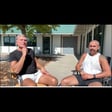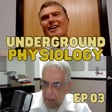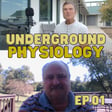
The Fourth Phase of Water with Dr. Gerald Pollack | Underground Physiology #02
In this episode of Underground Physiology, Dr. Pollack delves into the fascinating physiology behind his groundbreaking discovery—the fourth phase of water, known as a gel. We explore in depth how this gel forms a perfect semiconductor within the human body and how red light, particularly infrared light, serves as the key energy source driving this process.
Dr. Pollack’s revelation that human cells maintain their negative charge through the interaction of infrared light and water is one of the most revolutionary concepts in modern physiology. Yet, despite clear scientific evidence supporting his findings, mainstream science has been slow to accept them.
An active researcher and author, Dr. Pollack has spent his life driven by curiosity, translating his insights into paradigm-shifting scientific breakthroughs. Join us for a captivating discussion as we uncover the underground physiology of the fourth phase of water—an episode you won’t want to miss!


